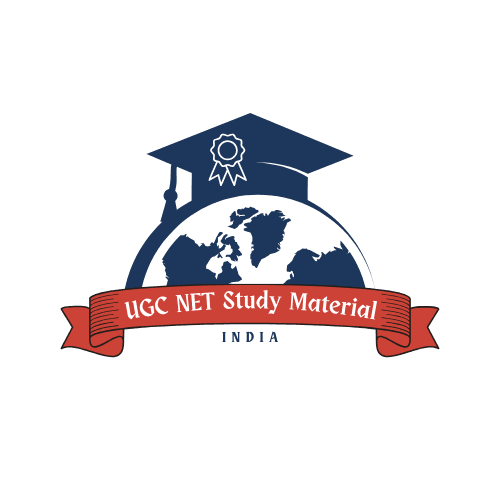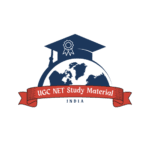UGC NET Syllabus
UGC NET Syllabus: Comprehensive Guide for Paper 1 & Paper 2
The UGC NET syllabus plays a crucial role in the preparation strategy for aspirants aiming to qualify for the National Eligibility Test. The NET syllabus is designed to assess candidates’ teaching and research aptitude while ensuring subject expertise. There are two papers in the UGC NET exam syllabus: Paper 1, which is the same for all applicants, and Paper 2, which is subject-specific.
UGC NET Paper 1 Syllabus
The teaching and research skills of candidates are assessed in the UGC NET paper 1 syllabus. This section tests reasoning ability, comprehension, divergent thinking, and general awareness. Below is a detailed breakdown of the syllabus:
Teaching Aptitude
- Teaching methods and strategies
- Learners’ characteristics
- Teaching support systems
- Evaluation methods
- Factors affecting teaching
Research Aptitude
- Research ethics and methods
- Types and characteristics of research
- Paper writing and publication ethics
- Sampling techniques
- Research-related terminologies
Comprehension
- Reading comprehension passages
- Answering questions based on passages
Communication
- Effective communication
- Types and barriers of communication
- Classroom communication
Mathematical Reasoning & Aptitude
- Number series and coding-decoding
- Mathematical operations
- Percentage, profit & loss
- Logical reasoning
Logical Reasoning
- Analogies, syllogism, and Venn diagrams
- Indian logic traditions
- Logical consistency
Data Interpretation
- Data representation (Tables, graphs, charts)
- Analyzing data trends
- Percentages and ratios
Information & Communication Technology (ICT)
- Basics of ICT
- Digital initiatives in higher education
- Communication tools
People, Development & Environment
- Sustainable development
- Environmental issues and laws
- Climate change and global warming
Higher Education System
- Structure of higher education in India
- Evolution of universities
- Policies and governance
UGC NET Paper 2 Subjects with Codes
The UGC NET paper 2 is subject-specific. Below is the list of subjects along with their respective codes:
| Subject Code | Subject Name |
| 00 | General Paper on Teaching & Research Aptitude (Paper -I) |
| 01 | Economics / Rural Economics /Co-operation / Demography / Development Planning/ Development Studies / Econometrics/ Applied Economics/Development Eco./Business Economics |
| 02 | Political Science |
| 03 | Philosophy |
| 04 | Psychology |
| 05 | Sociology |
| 06 | History |
| 07 | Anthropology |
| 08 | Commerce |
| 09 | Education |
| 10 | Social Work |
| 11 | Defence and Strategic Studies |
| 12 | Home Science |
| 14 | Public Administration |
| 15 | Population Studies |
| 16 | Music |
| 17 | Management (including Business Admn. Mgt./Marketing/ Marketing Mgt./Industrial Relations and Personnel Mgt./ Personnel Mgt./Financial Mgt./Co-operative Management) |
| 18 | Maithili |
| 19 | Bengali |
| 20 | Hindi |
| 21 | Kannada |
| 22 | Malayalam |
| 23 | Oriya |
| 24 | Punjabi |
| 25 | Sanskrit |
| 26 | Tamil |
| 27 | Telugu |
| 28 | Urdu |
| 29 | Arabic |
| 30 | English |
| 31 | Linguistics |
| 32 | Chinese |
| 33 | Dogri |
| 34 | Nepali |
| 35 | Manipuri |
| 36 | Assamese |
| 37 | Gujarati |
| 38 | Marathi |
| 39 | French (French Version) |
| 40 | Spanish |
| 41 | Russian |
| 42 | Persian |
| 43 | Rajasthani |
| 44 | German |
| 45 | Japanese |
| 46 | Adult Education/ Continuing Education/ Andragogy/ Non Formal Education. |
| 47 | Physical Education |
| 49 | Arab Culture and Islamic Studies |
| 50 | Indian Culture |
| 55 | Labour Welfare/Personnel Management/Industrial Relations/ Labour and Social Welfare/Human Resource Management |
| 58 | Law |
| 59 | Library and Information Science |
| 60 | Buddhist, Jaina, Gandhian and Peace Studies |
| 62 | Comparative Study of Religions |
| 63 | Mass Communication and Journalism |
| 65 | Performing Art – Dance/Drama/Theatre |
| 66 | Museology & Conservation |
| 67 | Archaeology |
| 68 | Criminology |
| 70 | Tribal and Regional Language/Literature |
| 71 | Folk Literature |
| 72 | Comparative Literature |
| 73 | Sanskrit traditional subjects (including) Jyotisha/Sidhanta Jyotish/ Navya Vyakarna/ Vyakarna/ Mimansa/ Navya Nyaya/ Sankhya Yoga/ Tulanatmaka Darsan/ Shukla Yajurveda/ Madhav Vedant/ Dharmasasta/ Sahitya/ Puranotihasa /Agama). |
| 74 | Women Studies |
| 79 | Visual Art (including Drawing & Painting/Sculpture Graphics/Applied Art/History of Art) |
| 80 | Geography |
| 81 | Social Medicine & Community Health |
| 82 | Forensic Science |
| 83 | Pali |
| 84 | Kashmiri |
| 85 | Konkani |
| 87 | Computer Science and Applications |
| 88 | Electronic Science |
| 89 | Environmental Sciences |
| 90 | Politics including International Relations/International Studies including Defence/Strategic Studies, West Asian Studies, South East Asian Studies, African Studies, South Asian Studies, Soviet Studies, American Studies. |
| 91 | Prakrit |
| 92 | Human Rights and Duties |
| 93 | Tourism Administration and Management. |
| 94 | Bodo |
| 95 | Santali |
| 100 | Yoga |
| 101 | Sindhi |
| 102 | Hindu Studies |
| 103 | Indian Knowledge System |
| 104 | Disaster Management |
| 105 | Ayurveda Biology |
For comprehensive information on the subjects they have selected, candidates may consult the official UGC NET most recent syllabus.
UGC NET Exam Pattern
Effective preparation requires an understanding of the NET exam structure.. The exam consists of two papers:
Paper | Number of Questions | Marks | Duration |
| Paper 1 | 50 | 100 | 1 Hour |
| Paper 2 | 100 | 200 | 2 Hours |
- No negative marking
- Both papers are computer-based
- Multiple-choice questions
UGC NET Syllabus Changes and Updates
Keeping track of UGC NET syllabus changes and updates is essential for candidates. Over the years, UGC has introduced modifications to align the syllabus with contemporary education and research trends. It is recommended to check the official website for any updates before beginning preparation.
UGC NET Syllabus Topics: Important Areas to Focus On
Based on recent exams, some high-weightage UGC NET Syllabus topics include:
- Research Methodology
- Logical and Analytical Reasoning
- Teaching Aptitude
- Environmental Studies
- ICT Applications

Frequently Asked Questions on the UGC NET Syllabus
What is the purpose of the UGC NET exam?
The purpose of the UGC NET exam is to evaluate applicants for Assistant Professor and Junior Research Fellowship (JRF) positions in Indian colleges and universities.
How many papers does the UGC NET exam consist of?
The exam includes two papers: Paper 1, which is a general paper on teaching and research aptitude, and Paper 2, which is subject-specific.
What are the key topics covered in Paper 1?
Paper 1 includes topics such as Teaching Aptitude, Research Aptitude, Logical Reasoning, Data Interpretation, ICT, Higher Education System, and People & Environment.
Where can I find the latest UGC NET syllabus?
The National Testing Agency (NTA) website, ugcnet.nta.nic.in, has the official syllabus.
Does the UGC NET exam have negative marking?
No, wrong answers in the UGC NET exam do not result in a deduction in score.
How many subjects can I choose for Paper 2?
Candidates can select from over 80 subjects for Paper 2, depending on their post-graduate specialization.
How often is the UGC NET conducted?
Twice a year, usually in June and December, the exam is administered.
What are the minimum qualifying marks for UGC NET?
General category candidates need to secure at least 40%, while reserved category candidates need 35% to qualify.
Can I apply for UGC NET if I am in the final year of my master’s degree?
Yes, final-year postgraduate students are eligible to apply, but they must fulfill the required qualifications before the results are declared.
How can I stay updated on changes to the UGC NET syllabus?
Regularly check the NTA website and follow educational updates to stay informed about any modifications to the syllabus.
Get the latest UGC NET syllabus and start your preparation with confidence!
Conclusion on the UGC NET Syllabus: Key Takeaways
The UGC NET Syllabus is extensive and necessitates a methodical approach to adequately cover every subject. Understanding the UGC NET paper 1 syllabus and preparing for UGC NET exam syllabus changes will boost your chances of success. Stay updated with the latest syllabus modifications and focus on key topics to ace the exam. By analyzing the NET syllabus and its pattern, candidates can optimize their preparation strategy and improve their performance in the UGC NET exam. Best of luck with your preparations! UGC NET Syllabus.




